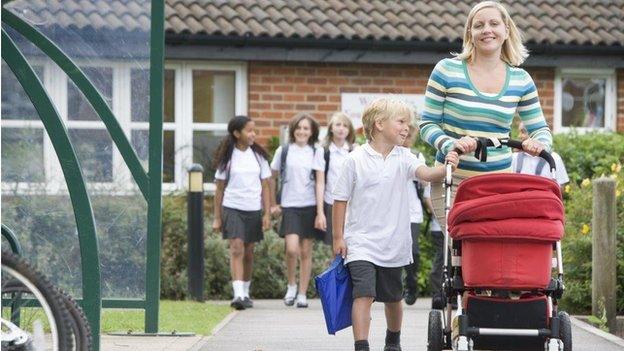School run: How Cardiff primary is transforming pupils' commute
- Published
Is this the future of school travel?
A primary school is leading the way to make the daily commute better for the environment and for pupils' health.
When Ysgol Hamadryad opened in Cardiff, those in charge were determined that pupils would walk further than from a car outside the front gate.
As well as cycling and scooter lessons, they made local roads unsuitable for parking and provide a walking bus for pupils to get to school.
Now the school has been invited to advise ministers and other schools.
The drive to ensure every pupil travels to their lessons in a sustainable way means the air around the school has less traffic fumes and each child starts the day walking for around five to 10 minutes.
"I really hope ideas like the walking bus catches on and Ysgol Hamadryad can lead the way," said head teacher Rhian Carbis.
"If we can do it here with a small staff, then anyone can do it."

Walking to school helps limit the impact of traffic and fumes close to the school
The new Welsh-language school, which opened in Butetown in January, has worked with parents and the local council to meet its ambitious target.
Location was a factor: on a headland with a park to the rear and just a few streets off a main road, the potential for congestion was high.
So they started personalised travel planning with the parents of their 100 pupils - an easier proposition now given they are not yet full.
They offered scooter and cycling lessons to pupils, and improved the local roads to make them safer and - crucially - unsuitable for parking in the area around the school.
They also established a "park and stride" walking bus where staff accompany children to school from a public car park nearby.
Parents pay just £2.50 per term for a permit to use the car park and drop off children on their way to work.
Now the school could become a pioneer for others around the UK with their Chair of Governors, Dafydd Trystan, invited to speak to the Welsh Assembly as well as advise a new school in Reading about the lessons learned on sustainable travel.
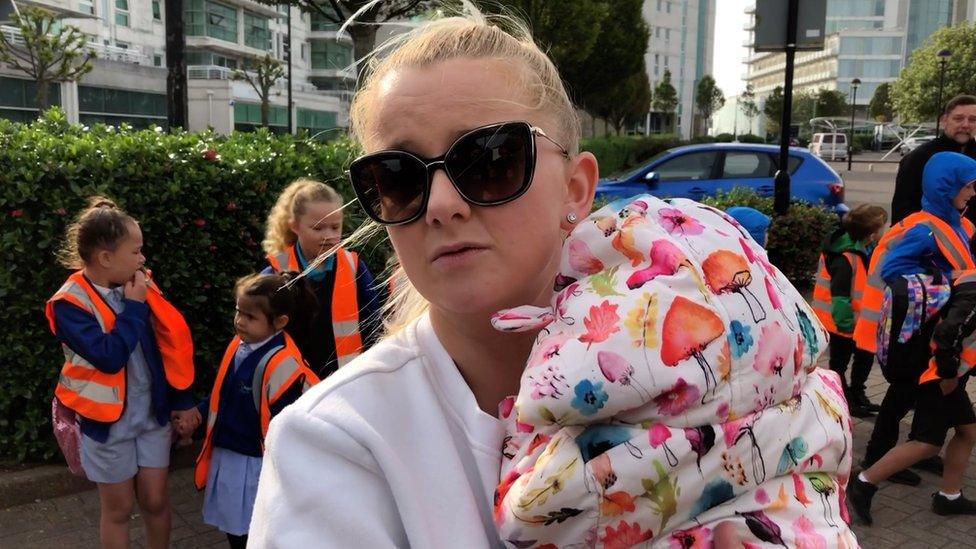
The scheme especially helps working parents like Kelly Brooks
The move to sustainable travel is now an integral part of the school.
"It's inbuilt into the school so much that we're saying to prospective parents, is that something you can sign up to because if not, this might not be the school for you," said Mrs Carbis.
"The majority of our parents are extremely supportive and for those unable to walk to school, there is the walking bus option."
Kelly Brooks drops her four-year-old son Cole each day for the walking bus.
"It's a brilliant idea and Cole wakes up excited to go on the walking bus every day - even in the rain," she said.
"It helps me with getting to work, it's exercise for him and it definitely raises awareness of bigger issues with the environment."

Head teacher Rhian Carbis hopes Ysgol Hamadryad could become a model for others to emulate
Mrs Carbis said they had seen some other, unexpected benefits from the walking bus.
"The children chat with friends on their way to school. Others with separation anxiety issues have benefitted - by the time they have got to the school site, they have forgotten mum and dad and are ready to learn straight away," she added.
The walking bus has become so successful that the school and parents are discussing extending it to pupils living in nearby Grangetown.
"We're hoping to develop our children as citizens who understand their impact on the climate," said Mrs Carbis.
"If we can play a small part in encouraging them to actively travel to school it can only benefit them in the long term."
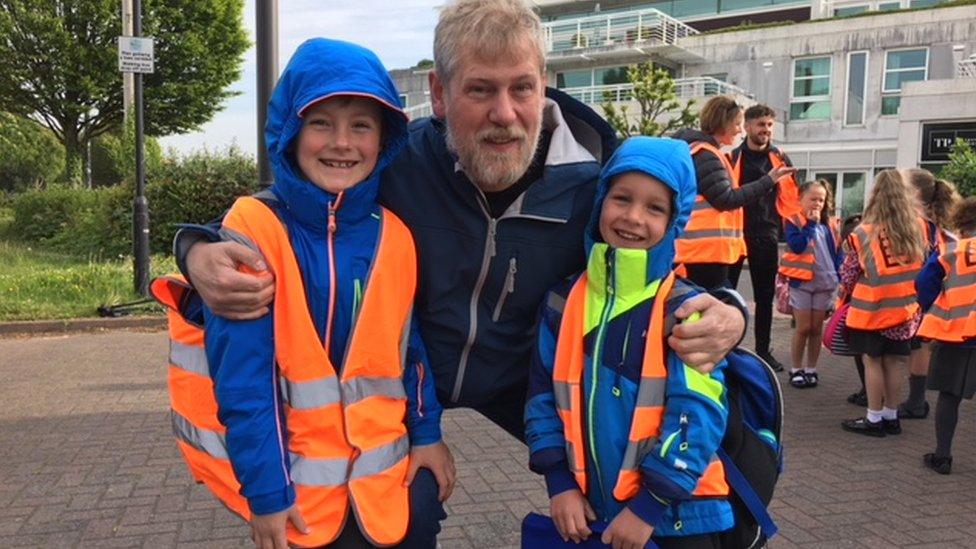
Parents have described the scheme as a "great idea"
Andrew Powell said his sons Osian, seven, and Morgan, five, were learning valuable skills.
"As well as the environment, all the children are learning about road safety and generally looking out for each other," he added.
Sustrans Cymru said the school was a "fantastic example" of how to make it easier for children to walk and cycle to school.
Director Steve Brooks said: "Barriers to active travel are sometimes over exaggerated.
"Ysgol Hamadryad's pro-active approach to dealing with the barriers they faced is really inspiring and a great example for other schools to follow."
- Published13 February 2019
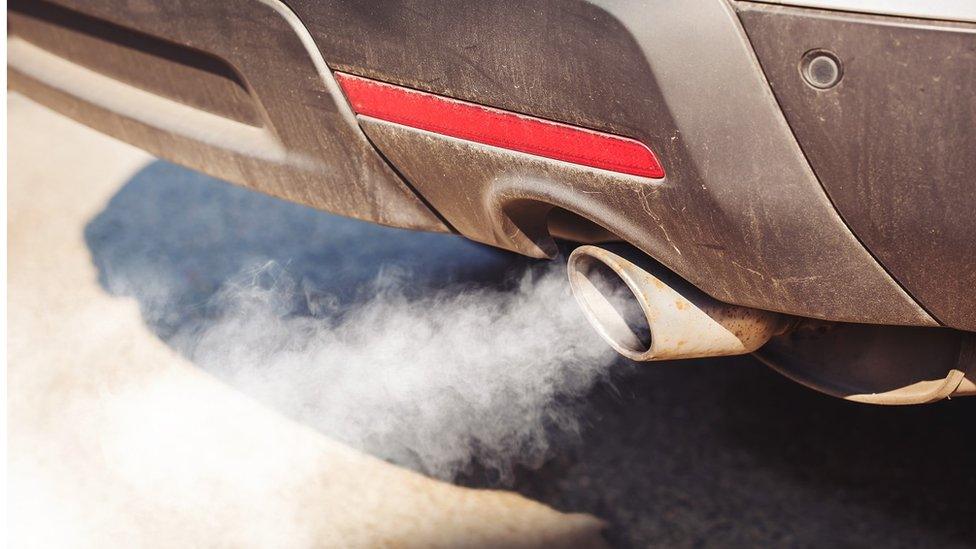
- Published24 May 2018
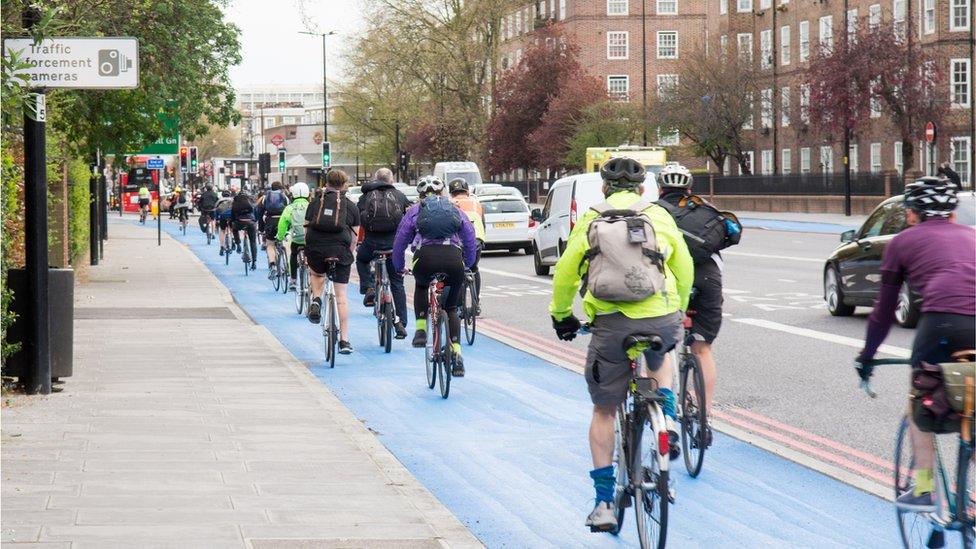
- Published8 January 2018
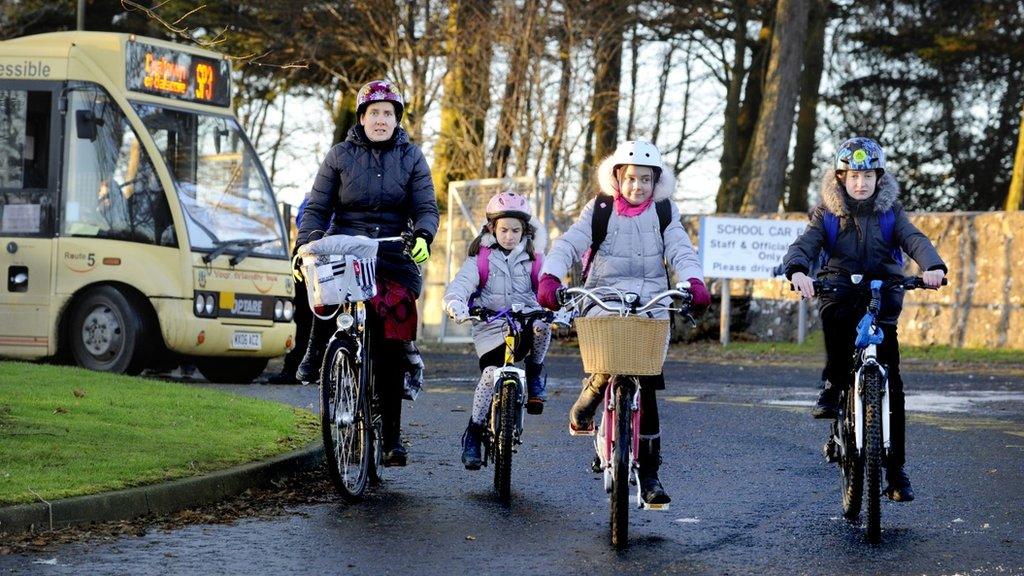
- Published3 May 2019

- Published15 February 2019

- Published25 January 2017
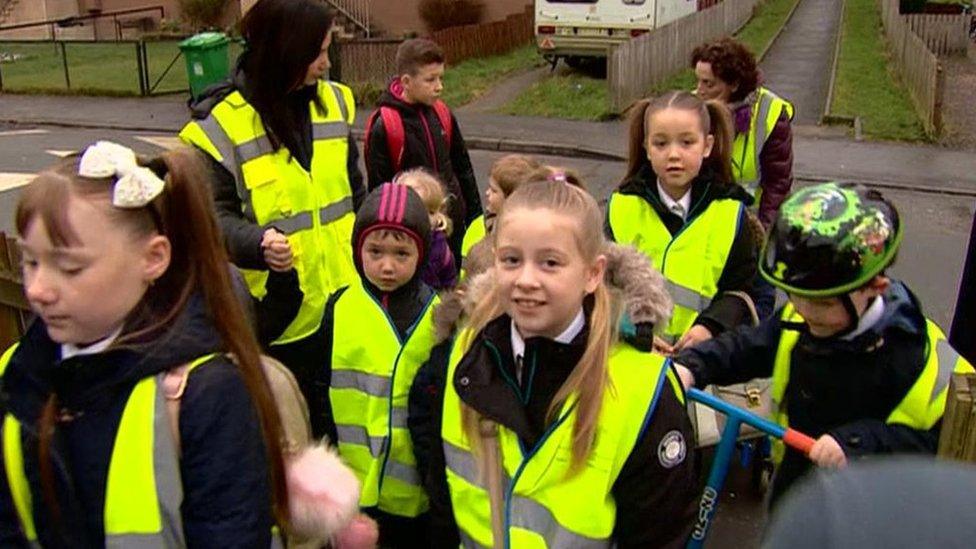
- Published16 May 2015
